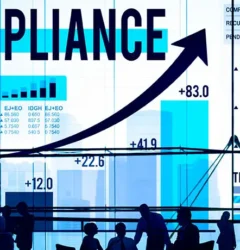The Future of AML Compliance in the UAE
- Stricter Regulations & Increased Enforcement
- UAE authorities, including the Ministry of Economy (MoE), Central Bank, and Financial Intelligence Unit (FIU), are tightening AML compliance.
- Businesses can expect more audits, heavier fines, and stricter enforcement of FATF guidelines.
- AI-Driven AML Solutions & Digital Transformation
- Adoption of AI-powered transaction monitoring and risk assessment tools is growing.
- Blockchain and biometrics will play a key role in KYC/CDD automation.
- RegTech solutions will become mandatory for compliance efficiency.
- Cross-Border Collaboration & Data Sharing
- The UAE is enhancing partnerships with INTERPOL, FATF, and GCC regulators.
- More centralized AML databases will help track suspicious activities across borders.
- Enhanced Beneficial Ownership (UBO) & PEP Monitoring
- Stricter UBO verification and monitoring of Politically Exposed Persons (PEPs).
- Free zone and offshore companies will face increased scrutiny.
- Mandatory AML Training & Certification
- Compliance professionals will need to obtain recognized certifications like CAMS (Certified Anti-Money Laundering Specialist).
- Regular AML training will be required for employees to keep up with evolving regulations.
- AML Compliance & ESG Integration
- Businesses will need sustainability risk assessments alongside AML due diligence.
- AML compliance will be linked with corporate governance frameworks.
- Cryptocurrency & Fintech Regulations
- The Virtual Assets Regulatory Authority (VARA) is tightening AML rules for crypto exchanges and VASPs.
- Blockchain analytics tools will be required to monitor virtual asset transactions.
- How Can Businesses Prepare?
- Upgrade to AI-driven AML solutions for better compliance.
- Strengthen KYC/CDD policies and maintain updated UBO registers.
- Conduct independent AML audits and regular staff training.









